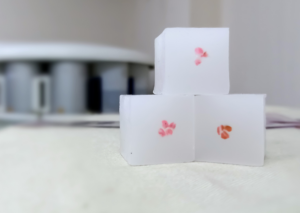
Precision medicine demands precision research. In other words, researchers require very specific human biospecimens to develop new techniques, tests, diagnostics, and treatments. Sadly, such samples are in sparse supply and finding them can be quite challenging and painful. Supply comes nowhere close to meeting demand. Genetic signatures are the quintessence of specificity in human biospecimens and all the rage in cancer research. Given this pretext, through our vast connections with clinical cancer sites and biobanks as well as to premier sequencing providers, iSpecimen has found a path to do the previously unthinkable-create a virtual inventory of FFPEs screened for mutations available for the broad research community.
What makes sequenced tissue blocks imperative to cancer research?
Genetic information is increasingly important in driving discoveries in oncology research, where a tumor's genetic signature may determine whether a stricken patient would or would not benefit from a certain treatment. Additionally, a tumor's genetic makeup helps to inform the development of new treatment plans and pharmaceuticals. For example, a single tumor may have a specific mutation or multiple mutations. This type of information is crucial as it provides insight into how researchers should approach the treatment of that specific tumor type.
Genetic signatures are also indispensable for developers of companion diagnostics, i.e., tests that are paired with new therapies to predict their efficacy. An oncologist might order a companion diagnostic to see if a certain cancer is treatable with a drug being considered for treatment. For example, a companion diagnostic would screen for the PD-L1 marker before an oncologist administers an immunotherapy such as Pembrolizumab or Keytruda.
Specificity is also essential to the development of sequencing technologies and cancer panels. Cancer panels are high-technology tests that screen tumor tissue for myriad mutations (e.g., TP53, KRAS, and BRAF for colorectal cancer).
In addition to aiding the discovery of new treatments, diagnostics, sequencing panels, and more, few can imagine discovering an eventual cure for cancer without the roadmap and understanding provided to us by these somatic mutations.
How iSpecimen alleviates the difficulty of acquiring mutation blocks for our research customers
Despite the enormous demand for thoroughly sequenced cancer samples, the high cost and complexity of screening (which often happens one sample at a time in a closed-loop clinical setting) renders the supply of sequenced samples incredibly small and hard to locate.
Left with no other choice, researchers typically spend extensive amounts of time and money hunting for and requesting small selections of tissue from multiple sources and suppliers. Worse yet they could opt to screen unverified cases themselves. These research organizations incur high financial risk with no guarantee of finding what they need.
We are here to offer a better solution. Our sequenced FFPE tissue program will remove the traditional barriers to targeted specimen collection and eliminate the risk for researchers. With the help of our provider network and trusted sequencing partners, we will have sequenced tissue blocks within selected cancer types along with their discovered variants ready to ship as soon as possible. These specimens will be accompanied by in-depth genetic, demographic, and histopathological data.
The future is bright: creating a sustainable workflow for the collection of sequenced samples
We are already partnering with biobanks, clinics, hospitals, and universities to identify promising collections of samples to screen, while simultaneously utilizing chosen commercial sequencing partners to characterize each sample in these collections with an expansive validated cancer panel.
As a result, we plan to dramatically increase the availability of specific cancer samples for use by researchers who, in many cases, may have struggled to assemble useful collections. This plan to build out a characterized oncology sample inventory will also benefit suppliers, as they will have new opportunities to generate more valuable samples for research. As expected, the results will provide donor samples with specific variants of interest, some cases with multiple variants of high interest, as well as wild type cases that are also in high demand.
iSpecimen will be the first company in our industry to sequence cancer specimens for research on a large scale using biospecimens that are truly leveraged from a Marketplace. Our partners will sequence specimens provided by vetted suppliers that possess a critical mass of valuable specimens to contribute to research. The program is made possible by fair and equitable agreements to use samples that have already been collected, stored, and approved for broad research use. No constituent in the chain has any need for wasteful spending having to take on costs for things such as inventory or sequencing samples destined to miss the mark. iSpecimen is contributing the cost of sequencing making this a win-win situation for both our suppliers and our customers. In this sense, the program is truly a collaborative effort to advance precision medicine and drive advancements for better patient care. To be a part of it is something to be immensely proud of.
This is what we mean by biospecimen specificity, not only in theory but in practice, helping research partners develop treatments, cures, and diagnostics to ultimately improve patient quality of life.
We'll keep you posted on progress and new specimen availability. And if you are looking for something in particular, please let us know.
Learn about the iSpecimen Marketplace where you can browse millions of richly annotated, de-identified human tissue and biofluid biospecimens, in addition to hematopoietic and immune cell products and COVID-19 samples. You can join for free. Contact us with any questions you might have about the iSpecimen Marketplace.